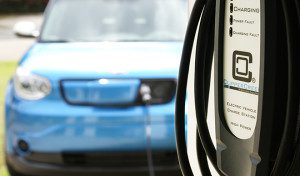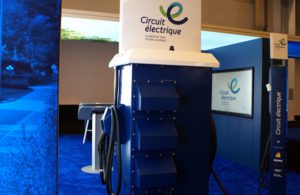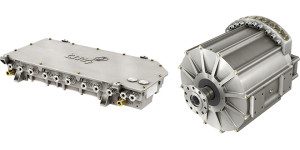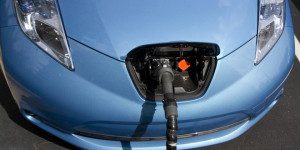Researchers from Hydro-Québec and the US Army Research Laboratory (ARL) used a new high-voltage cathode to produce what they say is the world’s first 5 V, 1.2 Ah Li-ion cell. According to ARL scientists Jan Allen and Richard Jow, who published their findings in the Journal of Power Sources, the cells enable higher energy densities and improved… Read more »
Search Results Found For: "Quebec "
New R&D partnership aims to put Québec in the Li-on battery race
Hydro-Québec and Nouveau Monde Graphite (NMG) have reached a research and licensing agreement that they hope will make Québec a contender in the booming battery business. The government-owned utility Hydro-Québec will assist NMG in developing small-scale mining operations to produce graphite which will be used as anode material for Li-on batteries. NMG’s graphite operation began… Read more »
Québec issues final regulations for ZEV mandate
Québec Minister of Sustainable Development Isabelle Melançon has issued the final regulations in support of Bill 104, a new law designed to increase the number of zero-emission vehicles in the province. Québec is the first Canadian province to adopt a ZEV mandate. As of today, close to half the Canadian ZEV fleet is located in… Read more »
Quebec adopts zero-emission vehicle mandate
Quebec has become the first Canadian province to adopt a zero-emission vehicle (ZEV) mandate similar to the one in effect in California. Quebec’s National Assembly passed the regulation by a unanimous vote of 112 to 0. Starting with the 2018 model year, automakers will be required to generate ZEV credits equivalent to 3.5 percent of… Read more »
Québec installing fast chargers along busy highway corridor
The Canadian province of Québec is systematically building a chain of fast charging stations along Highway 20, one of the region’s busiest corridors. Premier Philippe Couillard, Hydro-Québec CEO Éric Martel and other dignitaries celebrated the completion of a new phase of the project at the recent EVS29 Electric Vehicle Symposium. Public charging network The Electric… Read more »
Québec government provides funding for new electric drivetrain project
The Canadian province of Québec has taken a forward-looking stance on EVs – electric utility HydroQuébec is deploying public fast charging stations, and the provincial government has funded the development of an electric school bus and research into V2G technology. Now Québec Premier Philippe Couillard has announced that the province will make 16 million Canadian… Read more »
Nissan and Hydro-Québec partner to expand public charging network
Nissan has announced that it will support the expansion of the Electric Circuit public charging network with an investment in 25 DC fast charging sites. The Electric Circuit includes more than 360 public charging stations in operation in Québec, including 8 fast-charge stations. The new sites will be located at short-stop locations like restaurant chains… Read more »
EnerDel and B3CG Interconnect team up to develop batteries for Quebec school bus
The yellow school bus is going green in Quebec. Local firm B3CG Interconnect, a manufacturer of harness assemblies and electromechanical components, has partnered with battery supplier EnerDel to develop and manufacture traction batteries for Canadian school bus producer Lion Bus, which recently won a project from the Quebec Ministry to develop an all-electric school bus…. Read more »
An electric school bus is just the beginning of Québec’s electrification plans
Québec’s Ministry of Natural Resources has awarded Lion Bus Inc. $675,000 (Canadian) for a project to develop an all-electric school bus. The new bus will be based on the 72-seat Class C bus already built by Lion Bus, which features a body made largely of composite materials. With the help of three Québec-based partners –… Read more »
Hydro Québec launches experimental vehicle-to-grid and vehicle-to-home power exchange project
Hydro-Québec, an electric utility which gets most of its power from large hydroelectric plants and other renewable sources, sees electrified transport as a natural complement to its business. Its research division, IREQ, spends $100 million a year on research in various energy-related fields, and has been working on advanced batteries for 30 years. For its latest… Read more »












